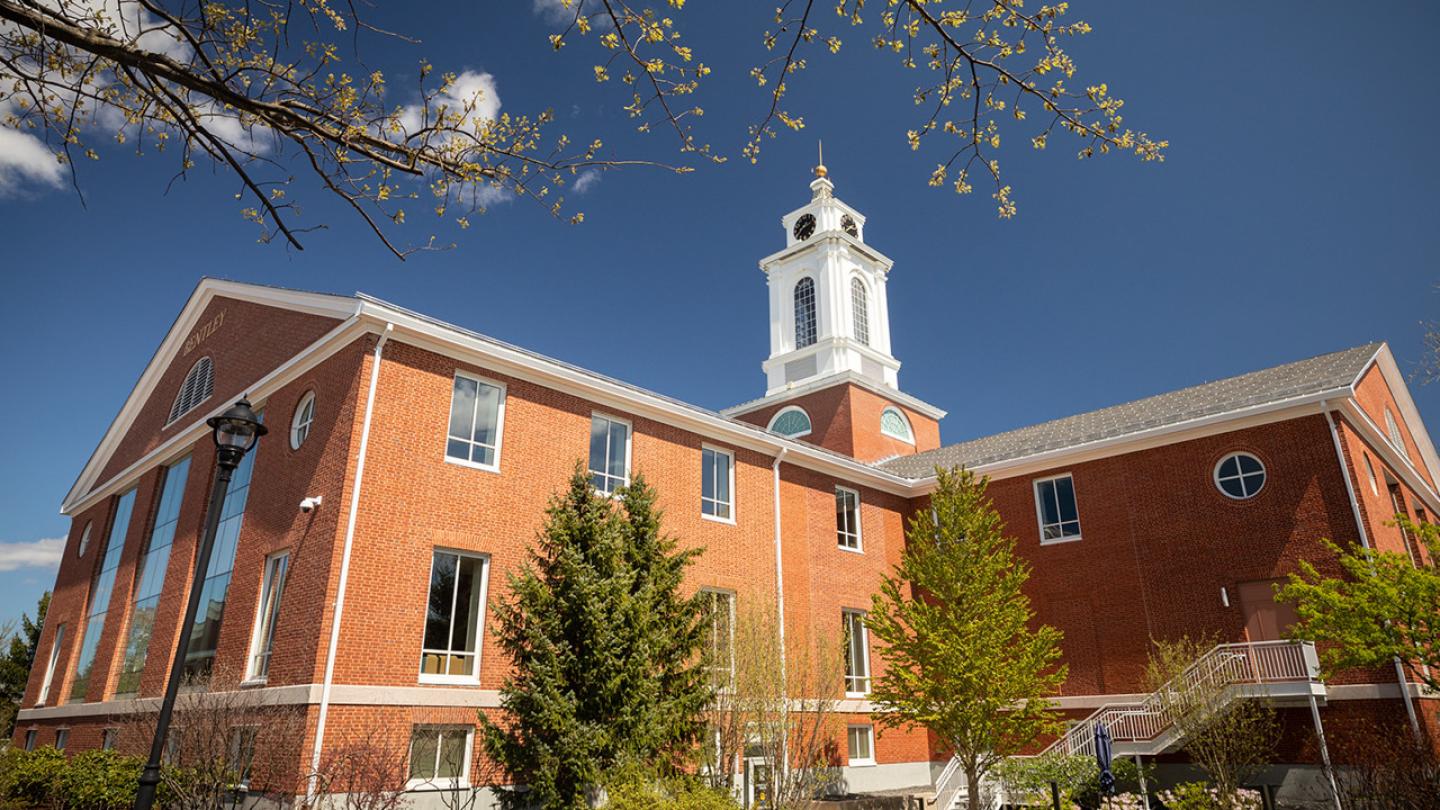Despite the generous aid given by so many institutions, private colleges and universities are often seen as out of reach financially by first-generation students. So they often end up at state universities, community colleges or out of higher education altogether. For a couple of years, Carolina Figueroa, Vice President for Enrollment Management at Bentley University in Massachusetts, wondered how they might change that.
What if tuition at Bentley could be the same as at the University of Massachusetts? Would that in fact increase the pipeline of high-achieving candidates from outside wealthier communities? The answer is yes.
Last month, the 104-year-old private university with a stellar business reputation announced its new BentleyFirst program, providing the ultimate access for first-gen students by offering scholarships that match the tuition cost at UMass-Amherst through donor assistance. Since it was announced, the number of students who have applied for the program has doubled over the last year. “It’s a very early indicator, but we won’t know more until later January,” Figueroa says. “We know the interest is there.”
Bentley has streamlined its guidelines and processes to get first-gen students enrolled, and there are very few caveats. Students must be Massachusetts residents and they must live on campus. Their parents must make less than $125,000 combined. If they have the academic credentials, they simply need to complete an application and standard financial aid forms. Once they are accepted under those terms, they are automatically enrolled in the program.
“What we’re doing really is opening up access to students that may not be thinking about going to a private institution,” says Figueroa, a former first-generation student herself. “Students who are first-generation tend to under-match. They end up applying to institutions that will readily admit them. What have seen over the last couple of years is students either not applying—they’re a perfect match for us in terms of their interests and their quality— or they’re applying for admission but not filling out all of the paperwork for financial aid.”

Bentley, part of the First-gen Forward national group of institutions known for their excellence in meeting the needs of first-gen students, has eliminated a lot of the complexities that prevent them from taking that last step. Aside from simplifying financial aid, it has created ways to make them feel more welcome. On the academic side, a test-optional policy has been in place for two years to attract more students. On campus and virtually, Bentley has added tours in Spanish. It is implementing a new curriculum next fall specifically targeting first-gen students to give them a sense of who they are in the community. “We also have a First-Gen Student Support Committee that makes sure that students are integrated and observed throughout their time at Bentley,” Figueroa says. “And we have an even more premium first-generation Presidential Fellows program that has a leadership and academic track.”
Although Bentley’s population is about 18% first-gen (national figures are around 50%), the university hopes the program opens far more opportunities. Bentley already boasts a strong support system for them when they arrive—its graduation rate is at 90%, with first-gen students completing at the same rate. Now, it’s just a matter of reaching them.
“We do go after, in general, high-achieving students, so we’re talking about someone who is already taking several AP courses and working,” she says. “This is a busy student we’re going after and trying to get in front of them. We work with guidance counselors, messaging them to make sure their students know this as an option. We’ve done a campaign where we are advertising in Spanish media, given the makeup of the population.” They’ve also used a barrage of messaging on social media channels, including Instagram, to get the word out, but, Figueroa says, “It is kind of noisy out there.”
It isn’t just students Bentley is trying to reach. Much of the financial muscle behind this program lies with donors, those especially who have a connection or affinity to the university. “A lot of our trustees and benefactors were themselves first-generation and from working families,” Figueroa says. “It was due to their Bentley education that they were able to be in that position to then give back.”
The message that first-gen students can get a private education for the price of public is a big selling point. It’s so good that some families have a hard time believing it. “We did have parents during the last event say, ‘Are you sure?’ about the many benefits of the BentleyFirst program. This is a game-changer. You weren’t even on the list. That really reinforces that this is going to make a difference.”



